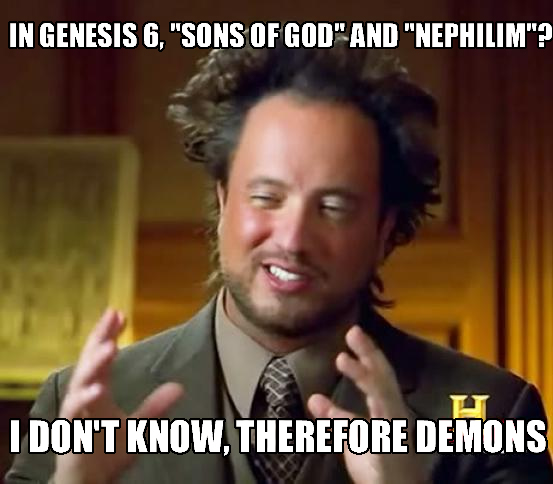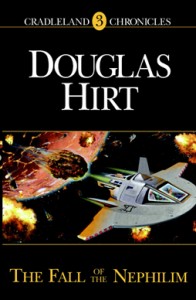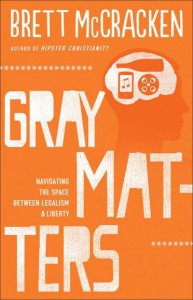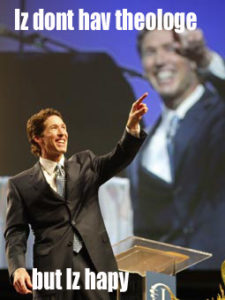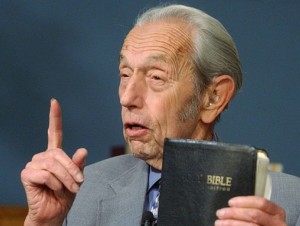Just Reached My Fill Of Nephilim
Speculating is enjoyable and can glorify God. But here is one area where it may go too far: when well-meaning Christians consider fringe archaeology, questionable theology, and extra-Biblical fiction not only crucial evidence for the faith, but the best evidence for faith.
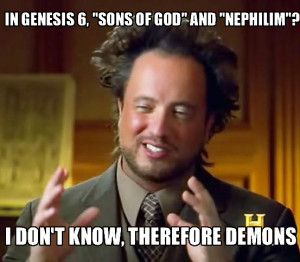 Recently a social-network acquaintance did this (again, surely well-intended). He/she went on a binge linking to videos about âNephilimâ â specifically, Nephilim-as-demons.1
Recently a social-network acquaintance did this (again, surely well-intended). He/she went on a binge linking to videos about âNephilimâ â specifically, Nephilim-as-demons.1
Yes, that notion is still getting around. Recently it popped up, apparently lazily, in the recent movie The Mortal Instruments: City of Bones, in which the lead character is said to be a âchild of the Nephilim.â2 Well, at least the majority of extra-Biblical and mystical material about supernatural âNephilimâ view them as the bad guys.
If you are sticking with the Bible alone â which I hope to do â that term comes from here:
When man began to multiply on the face of the land and daughters were born to them, the sons of God saw that the daughters of man were attractive. And they took as their wives any they chose. Then the Lord said, âMy Spirit shall not abide in man forever, for he is flesh: his days shall be 120 years.â The Nephilim were on the earth in those days, and also afterward, when the sons of God came in to the daughters of man and they bore children to them. These were the mighty men who were of old, the men of renown.
Genesis 6: 1-4
Not long ago in a column generally about Story Shutdowns, I included Nephilim and said:
Evil demons having relations with victim humans is Biblically questionable, based more on myths about incubi than actual Scripture. Second, it makes Christians sound like little more than guests on late-night conspiracy-centered radio, or potential targets of a meme that mocks a certain History Channel program host. We can get our âwhooo, itâs supernaturalâ X-Files-fashion jollies in other ways.
Here I reach some tender territory. SpecFaith endorses speculation and fantasy fiction, and that can include speculation about Biblical accounts. One of my favorite pulp-fantasy-style series is The Cradleland Chronicles by Douglas Hirt, a trilogy that explores the pre-Flood civilization as a fantastic land of technology, seeming magic, and yes, corruption of man not only from sinful hearts but from direct Satanic interference. Iâm also overall enjoying Brian Godawaâs similarly premised Noah Primeval, which includes demonic Nephilim.3
Yes, I may be tired of Nephilim as a trope. But I donât oppose sincere speculation, even the wild stuff. If you think later myths about incubi were based on factual, pre-Flood nastiness, Iâm fine with that. And if you believe that would make a great fantasy story you could write, enjoy, but also get in line: Godawa and Hirt and even Madeleine LâEngle are ahead of you.
Instead I oppose taking Nephilim speculation too far for reasons such as these:
1. ‘Nephilim were demons’ is highly Biblically questionable.
Genesis 6 only touches on the âNephilim.â Itâs like a postscript: And by the way, if you have heard about the Nephilim, well, they were here too. Scripture says they were there, âand also afterward.â So: after the Flood? Was Nimrod (Gen. 10:8), a âmighty hunter before the Lord,â also a Nephilim? This seems to rule out worse demonic activity that the Flood destroyed; if the demonic Nephilim only popped up again post-Flood, Godâs judgment for that evil failed.
Speculators make much of verse 1âs phrase âsons of God.â But that need not refer to angels who sinfully took human women. It could mean, simply, men. And later we also read what is surely a clearer definition of Nephilim: âThese were the mighty men who were of old, the men of renown.â
Demons! It must be about demons?
No. âNephilimâ could be a warrior tribe.
Letâs avoid insisting that Nephilim = demons beyond all doubt, then parade any âevidenceâ from either the book of Enoch (itâs fascinating, but isnât in canon) or elongated fossil skulls.
2. One could end up blaming demons, not humans, for sin then and now.
I can count on one hand, possibly two, the cases of people Iâve encountered â including a Christian bookstore patron and a Pizza Hut manager â who act as if the sum total of the Bibleâs message is that Demons Are Among Us, like the Nephilim.
Thatâs too many cases.
Whatâs the worst truth of Genesis 6? Itâs not verse 4. Itâs verse 5: âThe Lord saw that the wickedness of man was great in the earth, and that every intention of the thoughts of his heart was only evil continually.â God in His Word draws no causal relationship between demons or Nephilim acting up and manâs evil. Sin here isnât demonsâ fault. Itâs mankindâs.
Why then do people insist on treating Scripture as just another Ancient Text that holds the secret supernatural conspiracy secrets of ancient times? One answer: theyâre suppressing the truth in unrighteousness (Romans 1:18) . Disregard Gospel, acquire conspiracy secrets.
3. You just end up wacky.
In response to my no-longer-current Facebook acquaintanceâs link binge, I wrote:
Iâve seen so many people go off the rails into late-night conspiracy-radio-type stuff. I swear, the amount of times Iâve had people act as if antediluvian fallen angel/human sex, aliens, weirdness, demons, all that stuff, was the point of the Bible, rather than the one true God Who came Himself to set humans free from *their own slavery to sin* (which Satan and demons can only augment) â ugh, I see this only as a distraction from the true Gospel into plain mysticism. [âŚ]
There’s no reason to assume [the phrase âsons of God came in to the daughters of manâ] refers to demons or some kind of demon/human sex spawn. That comes from mythology, not Scripture.
Whatâs your view of âNephilimâ in faith and fiction? Have you encountered those who do raid Scripture for spare parts for supernatural conspiracy machines? How can we avoid enabling such sins while also enjoying any fantasy explorations where Scripture is silent?
- One of those videos is here. I admit I could not watch it all the way through; the speakerâs video-editing and composite style is overdramatic and, frankly, his very speech tone is grating. ↩
- The Mortal Instruments: A Dualistic Story of the Supernatural Without God, Brian Godawa on Aug. 23 at Godawa.com. ↩
- Of note: Godawa says his goal is to â(weave) together Sumerian and other Mesopotamian mythology in with the Biblical story.â (Godawa, Brian. Noah Primeval, p. 5. Embedded Pictures Publishing. Kindle Edition.) Godawa concedes he is speculating about a supernatural origin for the Nephilim. I have my doubts, but Godawa does believe this could have occurred. ↩
































